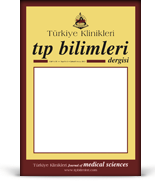Objective: To evaluate the relationship between water use of countries and coronavirus disease-2019 (COVID-19) data in order to establish the effect of water dynamics on COVID-19 pandemics. Material and Methods: The country-based water consumption per capita (WC) and COVID-19 indices [total cases per 1 million population (CI-C) and deaths per 1 million population (CI-D)] collected from the Worldometer website and the Global Competitiveness Scores from The Global Competitiveness Report 2019 of World Economic Forum which was accessed at the day of May 30th, 2020. The relationship between water consumption and COVID-19 incidences was evaluated with 'machine learning' methods. The statistical analyses were performed with the use of R software, version 4.0.0 (R Project for Statistical Computing). Results: For a total of 138 countries, we found a positive correlation between WC and CI-C (R 0.13). For the first 20 developed countries, we found a negative correlation between WC and CI-C and CI-D (R -0.18). The USA data is completely different from other 19 analyzed countries. The correlation coefficient becomes -0.44 when the USA is excluded, compared to -0.18 for all 20 countries including the USA. Conclusion: A negative relationship between water consumption and COVID-19 incidences was found at least for a relatively homogeneous group which is comprised of mainly developed countries. Among the developed countries, USA exhibits different characteristics. In contrast, when all 138 countries were analyzed, a positive relation was found. The results can be used from various disciplines since the water and its relations with micro-systems serve one of the most important issues for our present time and future.
Keywords: Water; coronavirus; pandemics; socioeconomic growth; machine-based learning
Amaç: Bu çalışmanın amacı, ülkelerin su tüketimlerinin koronavirüs hastalığı-2019 [coronavirus disease-2019 (COVID-19)] salgınları üzerindeki etkisini belirlemek için su kullanımı ile COVID-19 verileri arasındaki ilişkiyi değerlendirmektir. Gereç ve Yöntemler: Worldometer web sitesinden, ülkelerdeki kişi başına düşen su tüketimi [water consumption (WC)] ve COVID-19 indeksleri [1 milyon nüfus başına toplam vaka (COVID-19 indices-Case 'Cl-C') ve 1 milyon nüfus başına ölüm (COVID-19 indices-Death 'CI-D')] elde edildi. Dünya Ekonomik Forumu'nun 2019 Küresel Rekabet Edebilirlik Raporu'ndan Rekabet Edebilirlik Puanları ile ülkelerin gelişmişlik durumları 30 Mayıs 2020 tarihli erişim sonucuna göre sıralandı. Su tüketimi ile COVID-19 vakaları arasındaki ilişki makine öğrenimi yöntemleriyle değerlendirildi. İstatistik analiz için R Software, version 4.0.0 (R Project for Statistical Computing) kullanıldı. Bulgular: Toplam 138 ülke için WC ve CI-C (R 0.13) arasında pozitif bir korelasyon bulundu. İlk 20 gelişmiş ülke için, WC ile CI-C ve CI-D (R -0.18) arasında negatif bir korelasyon bulundu. ABD verileri, incelenen diğer 19 ülkeden tamamen farklı idi. Korelasyon katsayısı, ABD hariç tutulduğunda -0.44 olurken, ABD dâhil edildiğinde ise 20 ülke için -0.18 olarak bulundu. Sonuç: Gelişmiş ülkeler içinde -ABD farklı özellikler sergilemektedir- homojen bir şekilde su tüketimi ile COVID-19 vakaları arasında negatif bir ilişki vardır. Buna rağmen 138 ülkenin tamamı incelendiğinde su tüketimi ile COVID-19 vakaları arasındaki ilişki pozitiftir. Su ve mikro çevre ilişkileri günümüz ve geleceğimiz için en önemli konulardan biri olarak birçok farklı disiplin içinde kullanılmaya ve araştırılmaya değerdir.
Anahtar Kelimeler: Su; koronavirüs; pandemiler; sosyoekonomik büyüme; makine öğrenimi metodu
- Armitage R, Nellums LB. Water, climate change, and COVID-19: prioritising those in water-stressed settings. Lancet Planet Health. 2020;4(5):e175. [Crossref] [PubMed] [PMC]
- Akanda AS, Johnson K. Growing water insecurity and dengue burden in the Americas. Lancet Planet Health. 2018;2(5):e190-e191. [Crossref] [PubMed]
- WorldoMeter [İnternet]. © Copyright Worldometers [Erişim tarihi: 30 Mayıs 2020]. Coronavirus Reported Cases and Deaths by Country, Territory, or Conveyance. Erişim linki: [Link]
- Schwab K. The global competitiveness report. 2019;21. [Cited: 2 June 2020]. Available from: [Link]
- Hartigan JA, Wong MA. Algorithm AS 136: A k-means clustering algorithm. J R Stat Soc Ser C. Applied Stat. 1979;28(1):100-8. [Crossref]
- Towards Data Science [İnternet]. [Erişim tarihi: 31 Mayıs 2020]. Understanding K-means Clustering in Machine Learning. Erişim linki: [Link]
- UC Business Analytics R Programming Guide [İnternet]. [Erişim tarihi: 7 Haziran 2020]. K-means Cluster Analysis. Erişim linki: [Link]
- The Guardian [İnternet]. © 2020 Guardian News & Media Limited or its affiliated companies [Erişim tarihi: 8 Haziran 2020]. Could the "liberal" Dutch have learned from Taiwan's approach to coronavirus? Erişim linki: [Link]
- The Guardian [İnternet]. © 2020 Guardian News & Media Limited or its affiliated companies [Erişim tarihi: 8 Haziran 2020]. Test and trace: lessons from Hong Kong on avoiding a coronavirus lockdown. Erişim linki: [Link]
- TReNDS [İnternet]. [Erişim tarihi: 20 Mayıs 2020]. In Low-Income Countries Fundamental Data Issues Remain for COVID-19 Response. Erişim linki: [Link]
- Live Science [İnternet]. [Erişim tarihi: 2 Haziran 2020]. China increases Wuhan's COVID-19 death toll by 50%. Erişim linki: [Link]
- Npr [İnternet]. © 2020 npr [Erişim tarihi: 2 Haziran 2020]. Moscow Doubles Last Month's Coronavirus Death Toll Amid Suspicions of Undercounting. Erişim linki: [Link]
- Reuters [İnternet]. © 2020 Reuters [Erişim tarihi: 2 Haziran 2020]. Spain revises coronavirus death toll down by nearly 2,000. Erişim linki: [Link]
- The Washington Post [İnternet]. [Erişim tarihi: 8 Haziran 2020]. A tale of two epidemics: Scientists in Sweden and Britain fight over who took the right public health path. Erişim linki: [Link]







.: Process List